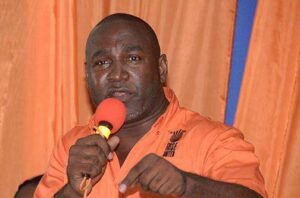FEMPower programme creates future leaders
GENDER equality remains a critical issue globally as young girls and women struggle against decades-old views and practices that seek to deprive them of rights and opportunities. In Jamaica, while the situation is not as extreme as many other countries, there still exists a startlingly high gender divide, with women still having to fight to be recognised for their work and worth.
The National Policy for Gender Equality demonstrates Jamaica’s commitment to promoting women in decision-making roles across all sectors. The policy specifies the use of temporary special measures such as quotas to facilitate gender balance in the public sector. Additionally, the policy acknowledges the importance of leadership training and development opportunities for women and girls to help them prepare to share reins of leadership with their male counterparts.
Over 30 years before the policy’s passage, the National Policy Statement on women noted that “while women are now participating at all levels in national development, they are hampered in developing their full potential as agents of development and do not benefit equally from the development process. Their participation in development is thus on inequitable terms, which not only contribute to the detriment of women themselves, but also imposes major economic and human costs on Jamaica as a whole”.
St Ann Fire Safety Officer Kerry-Ann Phillips knows this only too well. As a woman in what is deemed a man’s world of fire fighting, Phillips has come across discrimination and gender issues. But today, she is proudly and staunchly claiming her place at her station and the industry in general. This confident empowerment was as a result of her involvement in the FEMPower Leadership Programme, a series of introductory leadership courses for female youths and women supported by the United Nations Entity for Gender Equality and the Empowerment of Women (UN WOMEN) Fund for Gender Equality, and organised through the Bureau of Women’s Affairs’ Way Out Project.
“A lot of women are not empowered or self-motivated and we go nowhere on the job,” said the 11-year fire safety veteran. “Training like this helps you as a woman to see and understand your role and empowers you to stand and claim your place.”
The programme content included topics such as ‘leading self and others’, ‘effective communication’, ‘strategic planning’, ‘conflict management’, ‘gender mainstreaming’ and ’emotional intelligence’.
“There used to be a huge imbalance regarding emotional intelligence in my life. Actually, I didn’t know there was any such thing. But having done the course, I realised this was very important and it opened my eyes to using my emotional intelligence more as someone in a supervisory position. I have also applied this to my personal relationships. Overall, I now perform and communicate better. It was very groundbreaking for me. Having done this and the other courses, I think, plan, act and live differently now.”
Phillips is echoing a common refrain heard all around the world — a demand for more emotionally intelligent leadership instead of the traditional stereotypically masculine leadership style that has become dominant.
Certainly, this was the type of life-changing impact on women that the BWA, an agency of the Office of the Prime Minister, was hoping the programme would bring about when it was implemented in Kingston, Mandeville and Ocho Rios this past summer.












